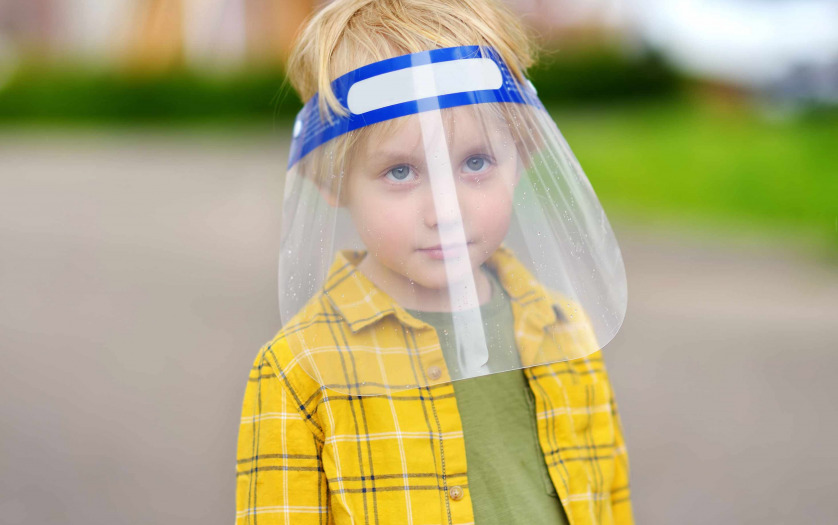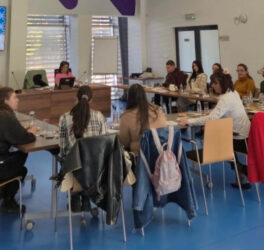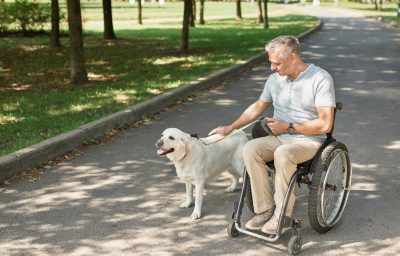
UK charities say its most vulnerable children are being “forgotten” in the COVID-19 vaccination rollout.
The country has achieved its target of vaccinating adults with profound developmental disabilities, but children under 16 years of age are not eligible as current vaccines have not been approved for minors.
Most children are unaffected by coronavirus in comparison to adults; however, children with underlying health conditions can be at greater risk of becoming extremely sick and, even dying. Many children with disabilities have been house-bound or “shielded” for the last year.
James Taylor, Executive Director of Social Change at Scope, a disability equality charity in England and Wales, said, “Many [families] feel completely forgotten by the government after nearly a year of lockdowns with stripped back support, education and social care.
“For parents of children with complex conditions, it’s a very complicated picture as to when families will be able to stop shielding. We urge the government to issue clear, accessible information around the vaccine to alleviate this anxiety.”
Kirsteen McNish, mother of an 11 year old with Down’s Syndrome and a history of pneumonia, has been shielding her daughter since last March. “There’s a presumption from most people that my daughter is getting vaccinated – we’ve had no news and people presume she’s covered but she’s not as yet. It’s very stressful, especially when we have who knows how long still at home. It feels like it’s guesswork and we’re repeatedly chasing for answers.”
Another mother, who wished to remain anonymous, told the Guardian that she had to stop working as a nurse for the last year to protect her vulnerable four year old son. “I’m returning to work soon and petrified of making my son ill. Something needs to be done to get children who are shielded on the vaccine list so they can get back to education safely. The fact that Covid is harmless to healthy children is no reassurance when your child has already been on life support once before due to their condition.”
WellChild, a charity for seriously ill children, said its community of 2,500 parents and caregivers are expressing great concern about the availability and safety of vaccines for their children. Colin Dyer, WellChild Chief Executive, said, “What is urgently needed now is a clearly communicated roadmap out of this crisis for clinically vulnerable children and their families, including a thorough assessment of vaccine safety for this specific group.”
The effectiveness of the Oxford/AstraZeneca vaccine in children as young as six is about to enter testing, while several trials are already occurring to develop vaccines that are safe for teenagers.
Although rare and not widely known by the public, doctors can go “off label” in special circumstances, meaning they can vaccinate a vulnerable child at their discretion.
According to the Head of Campaigns for the disability charity Contact, Una Summerson, this has only added to the confusion for worried parents, stating, “[It] led to a lot of false hope for parent carers on our Facebook group who took it as a green light to talk to their child’s consultant to arrange a vaccine. In fact, the vaccine is some way off being authorised for use in children and no timetable for vaccinating vulnerable children has been published.”
A spokesperson for the Department of Health and Social Care spokesperson said, “The Medicines and Healthcare products Regulatory Agency (MHRA) guidance allows clinicians, in exceptional circumstances, to prescribe vaccine doses to people outside the groups permitted for vaccination.
“For a very small number of children at a higher risk of catching the virus and serious illness, the Joint Committee for Vaccination and Immunisation (JCVI) has advised that vaccination can be appropriate.
“JCVI advises that this is a decision for doctors and clinicians to make on a case-by-case basis and should be carefully discussed between a child’s parents or carers and their GP.”








